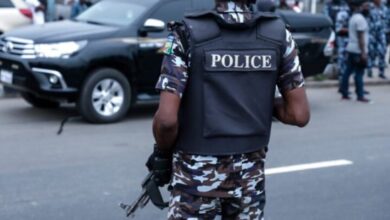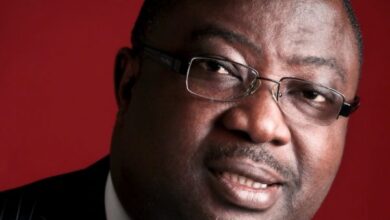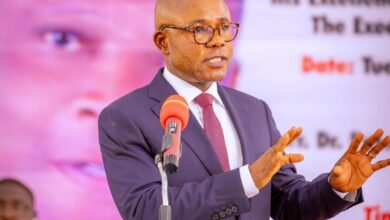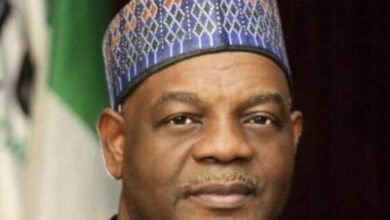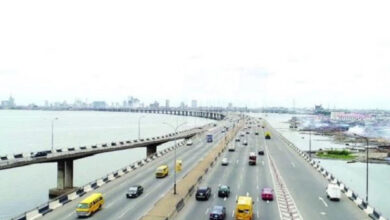Democracy dying in Africa, Obasanjo, Jonathan, Mahama warn
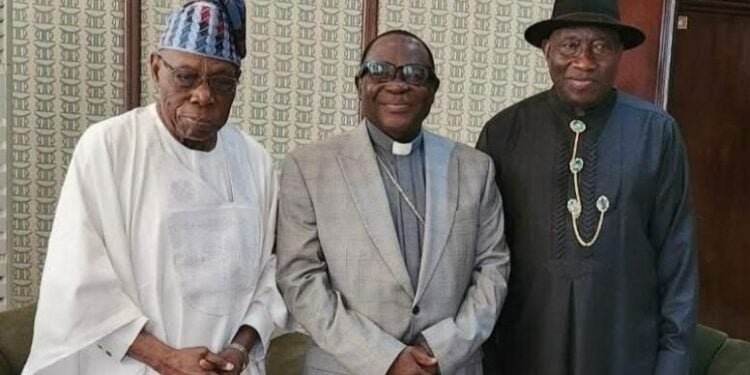
(DDM) – Former Nigerian president Olusegun Obasanjo has warned that democracy in Africa faces imminent collapse unless urgent reforms are carried out.
Diaspora Digital Media (DDM) gathered that Obasanjo made the warning at the Democracy Dialogue of the Goodluck Jonathan Foundation in Accra, Ghana.
The forum, which drew African leaders and elder statesmen, focused on the weakening of democratic institutions and the rise of authoritarian tendencies.
Obasanjo, who chaired the session, declared that democracy as currently practiced has drifted dangerously from its original principles.
He insisted that democracy is supposed to be government of the people, by the people, and for the people.
But according to him, the version now practiced across the continent is increasingly hollow and unable to deliver real development.
“Democracy dies because democracy has refused to be reformed,” Obasanjo said in his keynote address.
He warned that without reforms in context, content, and practice, democracy would not only fail but “die and be buried.”
Obasanjo argued that the essentials of democracy have been ignored or bastardised, making the system incapable of delivering results.
He dismissed the popular interpretation of democracy as “government of the majority,” saying it marginalises minorities and undermines inclusivity.
“What happens to the minority if democracy is simply majority rule?” he asked, questioning the fairness of such practice.
Despite his criticisms, the former president maintained that democracy, in its true form, remains the best system of government.
He stressed that there is no ideal substitute to democracy, even with its flaws, as long as it is properly reformed.
Former Nigerian president Goodluck Jonathan also raised alarm over the fragility of Africa’s democracy.
Jonathan warned that electoral manipulation remains one of the biggest threats to democracy on the continent.
He said that where democracy fails to meet expectations, desperation often opens the door to authoritarianism.
Jonathan insisted that leaders who fail to perform should be voted out if proper elections were conducted.
He argued that in Africa, electoral systems are often rigged to help politicians perpetuate themselves in power.
“Our people want their votes to count during elections,” Jonathan declared in his remarks.
He listed security, education, healthcare, jobs, and dignity as the basic needs citizens expect from leaders.
Jonathan warned that when leaders fail to provide these, people become disillusioned and lose faith in democracy.
He also highlighted the role of youth in governance, saying their participation is encouraging but needs guidance from elders.
Ghana’s former president John Dramani Mahama echoed the concerns, stressing that democracy must be actively defended.
Mahama warned that corruption, misgovernance, and lack of opportunities have eroded citizens’ trust in democratic institutions.
He insisted that a “reset of democracy” is urgently needed to restore accountability and integrity in governance.
“Democracy will not survive if we don’t work for it,” Mahama told participants at the dialogue.
He emphasised the need to strengthen institutions, deliver development, and protect civic spaces.
According to Mahama, a free press is democracy’s immune system and must be protected at all costs.
“Democracy dies when citizens lose faith, when leaders abandon integrity, and when institutions succumb to capture,” he warned.
Mahama insisted that citizens must rise to defend democracy, or risk losing it to authoritarian regimes.
The event also featured contributions from ECOWAS Commission president Dr. Omar Touray and Bishop Matthew Kukah of Sokoto Diocese.
Both emphasised the need for reforms that guarantee transparency, inclusivity, and credible elections across Africa.
Observers note that Africa has witnessed a resurgence of military coups in recent years.
Countries like Mali, Burkina Faso, Niger, and Guinea have fallen to juntas citing failed democratic governance.
Analysts say these developments highlight the urgency of calls for reform by Obasanjo, Jonathan, and Mahama.
The Goodluck Jonathan Foundation, which convened the dialogue, has consistently championed democracy, peace, and good governance.
The foundation says African democracy must evolve to meet the unique challenges of the continent.
Experts argue that without reforms, the disillusionment expressed by citizens could deepen, paving way for instability.
The Accra dialogue ended with a consensus that democracy in Africa is at a crossroads.
Elder statesmen agreed that reform, accountability, and citizen participation are the only path to safeguard the continent’s future.
Post Views: 29

